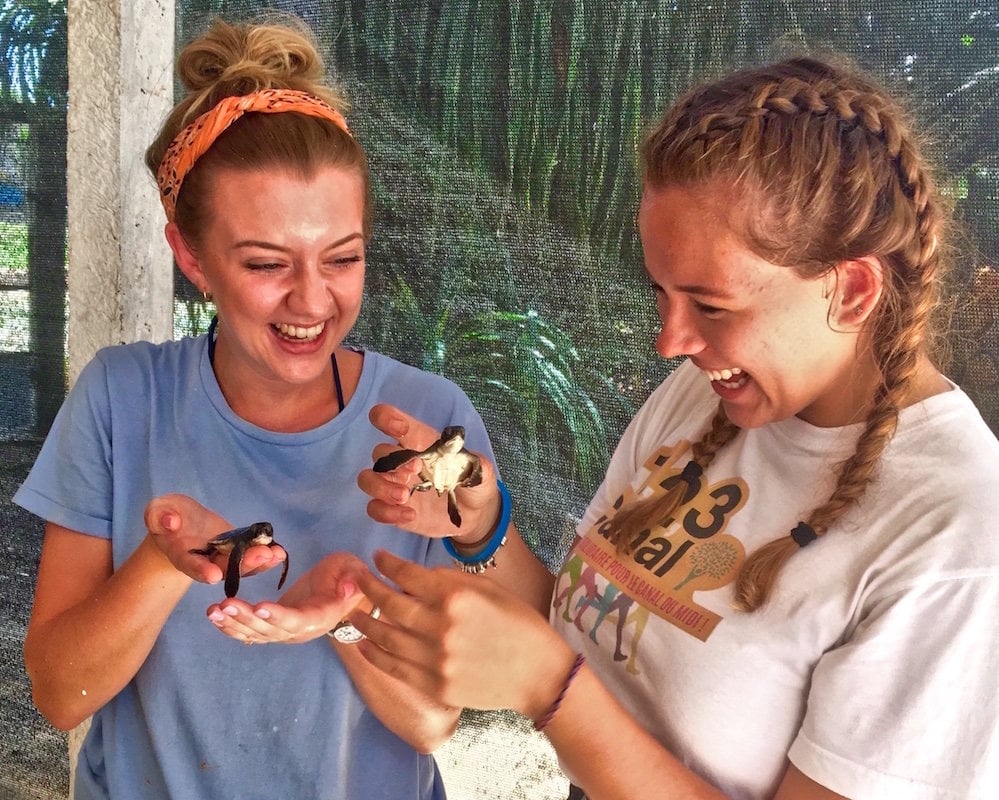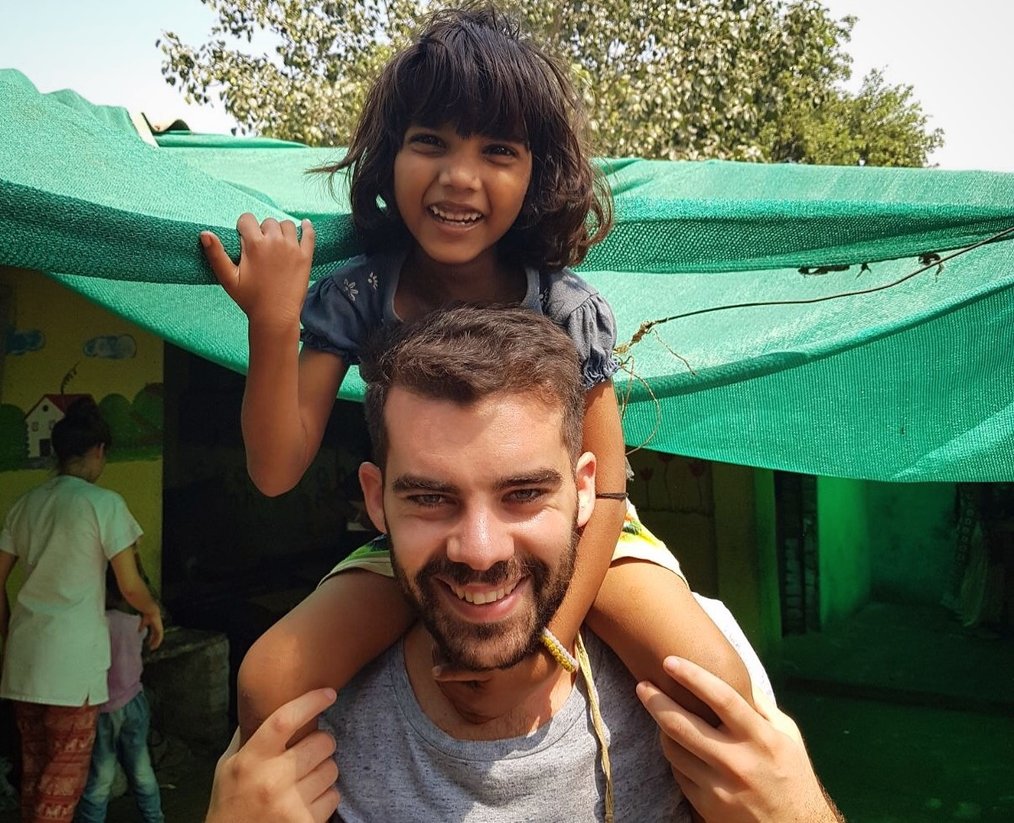10 Steps to Planning a Gap Year Before College
Have you been daydreaming about taking a gap year before college? Let's make it a reality. Read on for your ultimate 10-step how-to guide to planning a gap year before college!

Happy Gap Year Exploration Month! That’s right, February is Gap Year Exploration Month, an opportunity to learn more about the gap year option.
Go Overseas is celebrating Gap Year Exploration Month by continuing to host the USA Gap Year Fairs series, as well as accepting applications for its $3,000 Gap Year Scholarship.
Have you been daydreaming about taking a gap year before college? Let's make it a reality. Read on for your ultimate 10-step how-to guide to planning a gap year before college!
How to Plan Your Gap Year (Independent vs. Program)
Learn even more about how to plan your gap time with expert help from gap year counselors on this recorded webinar from the 2021 USA Gap Year Fairs series!
1. Start by Dreaming

Sophomore or junior year is a great time to start thinking about your gap year before college, but there’s no pressure to make a firm decision yet. Think broadly about where you could spend time, what interests you could pursue, and which programs most pique your imagination.
Attend a gap year fair, listen to podcasts, and talk to upperclassmen who took gap time. Brainstorm your ideas in a way that makes sense to you -- journaling, dreamboarding, or bookmarking your favorite ideas.
2. Think Ahead to College

If you are serious about taking a gap year before college, factor that into your college research. There are benefits to applying to college before your gap year. For example, some schools like Florida State University, UNC Chapel Hill, and Duke University offer scholarships for their gap year students.
Other colleges are simply “deferral-friendly” meaning you can postpone your admission for an intentional gap year. If you are bound for a four-year college, it’s best to apply senior year with your peers and then ask for a deferral from your school of choice in the spring. Typically that entails writing a formal deferral letter about how you will spend your gap year and putting down a deposit.
3. Plan Your Gap Year Before College with Goals in Mind

Students usually start planning their gap year in earnest during their senior year before college. It can seem overwhelming at first when you are faced with so much choice: what should you do in your gap year before college? Make it easier on yourself by starting with 3-5 personal goals.
Anchoring your year to deliberate choices will not only make researching opportunities simpler, but the outcome will be more meaningful for you too. Some common gap year goals are based on personal interest (“I’d like to gain fluency in French”), geography (“I’ve always wanted to see India"), career exploration (“I’d like to gain field experience with biologists”) or a challenge (“I want to trek part of the Pacific Crest Trail”)
4. Research. Research. Research.

Consider your options by reading up on gap year research online, reading program reviews, and watching videos to gain a sense of various options. If you are considering joining a gap year program, ask to speak with a student reference so you can feel really confident about your choice. If you feel paralyzed at this point in the process, seek additional help from a trusted adult, a gap year counselor, or your parents.
5. Figure Out the Financials for Your Gap Year
Think about your gap year budget and what opportunities fit within your means. Some students receive financial help from their parents and some completely self-fund their gap time. Keep in mind that you might be able to join a more expensive program if you offset the higher cost by working or doing less expensive programs at other points in your year. Also, make sure to look into gap year financial aid and scholarships.
Read more: How to Book Cheap Flights
6. Leverage Your Relationships

Conduct a resource mapping exercise, where you and your family brainstorm about who might offer to host you during your gap time. You might find your dad’s college roommate is happy to host you in Washington D.C. while you intern, or maybe your second cousin needs a live-in nanny in Italy.
7. Set Your Gap Year Itinerary

Most gap year itineraries contain multiple blocks of time, so as your ideas come into focus you can decide what makes sense at what point in the year. If it’s easier to plan your year by dividing it up into semesters, that can be helpful.
This is an example timeline of what your gap year before college can look like:
- Summer after high school graduation (June - August): Work at home, save money
- Fall (September - November): Leave home on gap year opportunity #1
- Winter Holidays (December): Most students prefer to come home for the holidays or have family meet them where they are!
- Winter (December - February): Gap year opportunity #2 or continuation of #1
- Spring (March - May): Gap year opportunity #3 or continuation of #2
- Summer (June - August): Back home to work and prepare for the transition to college
Generally, it makes sense to start your gap year with a more structured or supported program and save more independent activities (like backpacking Southeast Asia) for later in the year.
Think of your gap year as a video game - you start on the easiest level and work your way up.
8. Fill in the Gaps (pun intended!)

You might find after assembling your itinerary that you have spans of time that are unplanned or awkward spaces between programs. While there’s no need to overschedule yourself, if it’s longer than a few weeks, you should think about ways to stay productive during those times. Students find purpose volunteering locally at home, returning to their summer job temporarily, setting up job shadows or even joining short term projects that fit their dates.
9. Make like a Boy Scout and be Prepared
After graduation day it might seem like smooth sailing, but it’s actually game time for gap year prep. Summer after graduation is when you should be finalizing plans, booking tickets, and mentally preparing for your adventure. Brush up on a new or familiar language, train if you’ll be doing a physically active program, and read up on the places you’re headed to. And don’t forget to visit the travel doctor and purchase appropriate travel insurance!
10. Keep an Open Mind and an Adventurous Spirit

The most important thing you can bring on your gap year is an open mind (corny but true!). You’ll be surprised and delighted by the people you’ll meet, the places you’ll see, and the adult you will become.
Now that you have your 10 step guide to a gap year before college, take advantage of in-person and virtual events happening this month, as well as contests, articles, and videos being released all month long. Follow the hashtag #explorethegapyear on Instagram to stay on top of all that’s happening or start exploring gap year programs and other articles below.
